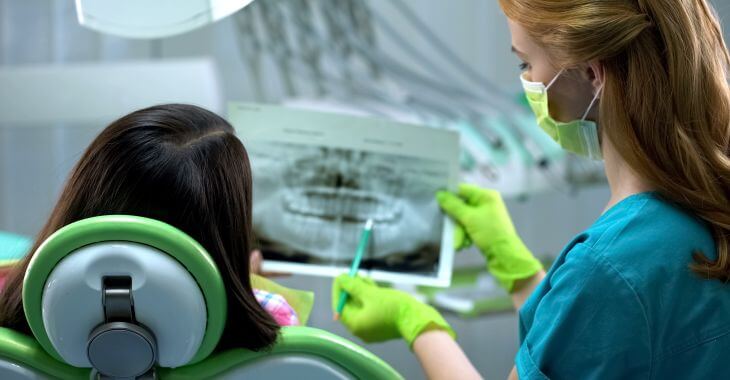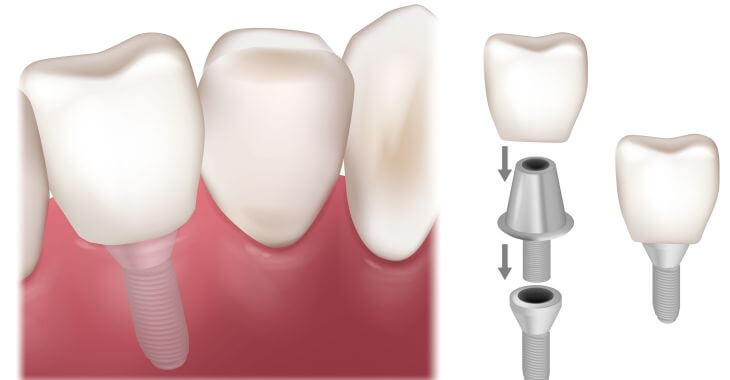When Can I Smoke After Wisdom Tooth Extraction?

Tooth removal or extraction is a common oral surgery that requires some recovery and healing time. Once a tooth is removed, the gum tissue must be allowed to heal. Wisdom teeth removal is often the first tooth extraction procedure many people endure. After the extraction, one of the post-procedure recommendations is refraining from smoking. If you are wondering, “When can I smoke after wisdom tooth extraction?” there are some facts you should know. Here is some information on why you should not smoke after tooth extraction surgery.
Healing after a tooth extraction involves the gum tissue closing and stopping the bleeding. A blood clot should form and be left in place to stop the bleeding. The blood clot is vital, as it allows the tissue underneath to heal over and around the exposed bone. If the blood clot is removed, it can cause a condition called dry socket. A dry socket can be painful and it increases risk of infection. One of the reasons smoking is not recommended after any tooth extraction is the higher risk of dry socket and infection.
What Happens If I Smoke After Tooth Extraction?
Smoking cigarettes after a wisdom tooth or any tooth extraction can cause delayed healing and other problems. First of all, smoking introduces toxins into the oral cavity that can impact healing. Smoking also can decrease blood oxygen levels – oxygen is crucial for healing the damaged tissue where the tooth was removed. The biggest concern if you smoke after tooth extraction surgery is dry socket or removal of the blood clot.
Smoking can cause dry socket by the mechanism of sucking or inhaling from a cigarette or vaping device. Drawing in the smoke can create enough pressure to dislodge the blood clot, exposing the raw tissue and bone underneath. Symptoms of dry socket include:
- Intense or throbbing oral pain 2-4 days after extraction
- An empty socket
- Bad breath
- A foul taste in the mouth
A dry socket can lead to a severe infection and serious health problems. If you have signs or symptoms of dry socket, you should call your dentist immediately.
Refraining from Smoking After Tooth Removal
Now that you know why you should not smoke after a tooth has been removed, you may still wonder, “When can I smoke after tooth extraction procedures?” If you are a smoker, it can be hard to refrain from cigarettes, but it is vital to allow your gum tissue to heal after a wisdom or other type of tooth extraction. Most dentists will recommend at least three days of refraining from smoking to prevent dry socket and to allow for quicker healing.
About 72 hours is considered the minimum time to avoid smoking after a tooth extraction. This is to give the mouth time to heal and avoid exposing the injured tissue to toxins. All actions that require a suction action like smoking or drinking from a straw should be stopped for at least three days. The three days can give the surgical site time to begin healing and it is less likely for the blood clot to be removed after 72 hours. However, the longer you can avoid smoking, the better chance you have of avoiding dry socket and complications.
Preparing for Your Tooth Extraction
If you are a smoker and you have a tooth extraction planned, it is important to consider your options. Instead of wondering, “When can I smoke after wisdom tooth extraction surgery?” you may want to consider using this opportunity to quit this habit. Smoking does not only increase risks for infection, pain and dry socket after tooth removal, it impacts oral health overall. Smoking can be a factor in periodontal disease and eventual tooth loss, as well as impacting the appearance of your teeth and smile.

If quitting is not a possibility, prepare yourself for living without smoking for at least three days after your tooth extraction. You can talk to your doctor or dentist about safe alternatives to use to help with avoiding smoking during the healing process. Remember that smoking can cause many oral health problems after a tooth extraction that can be painful and harmful. It is not worth the risk to smoke after tooth extraction surgery, so refrain for as long as possible to give your mouth time to heal.
Whether you need an infected tooth pulled or it is time to have your wisdom teeth removed, adhering to the post-surgery instructions is vital. Your dentist will go over all the post-surgery recommendations for faster healing, including instructing you not to smoke after tooth extraction surgery for at least three days. Stay away from smoking and any other restrictions provided by your dentist to ensure you heal quickly and avoid higher risks of complications from your tooth extraction oral surgery.
The information provided on this website, including text, graphics, images, and other materials, is intended solely for informational purposes and should not be used as a substitute for professional medical advice, diagnosis, or treatment.




)